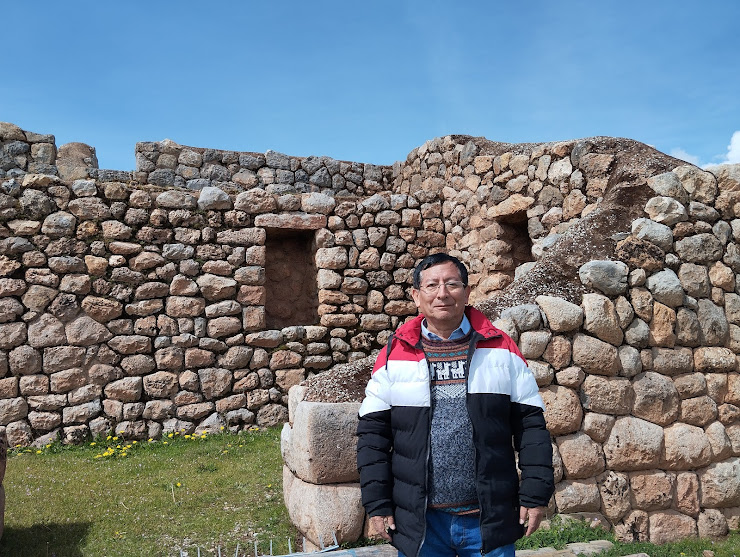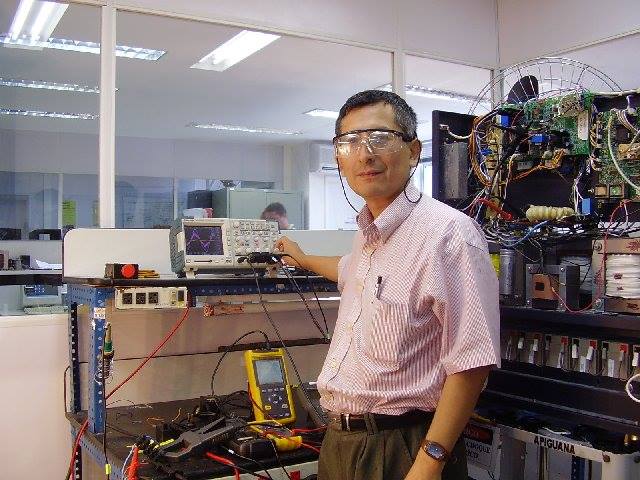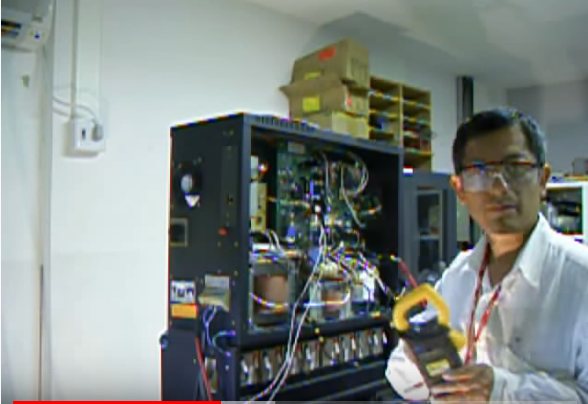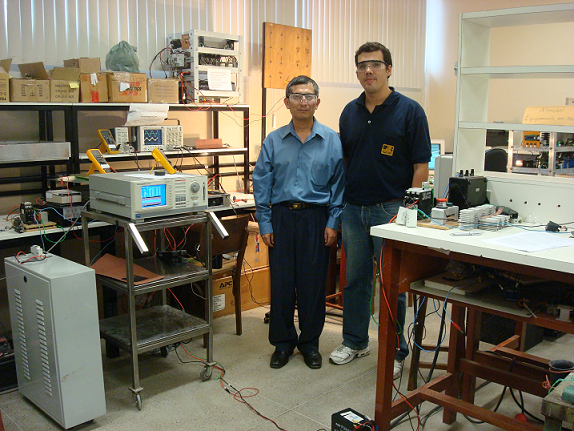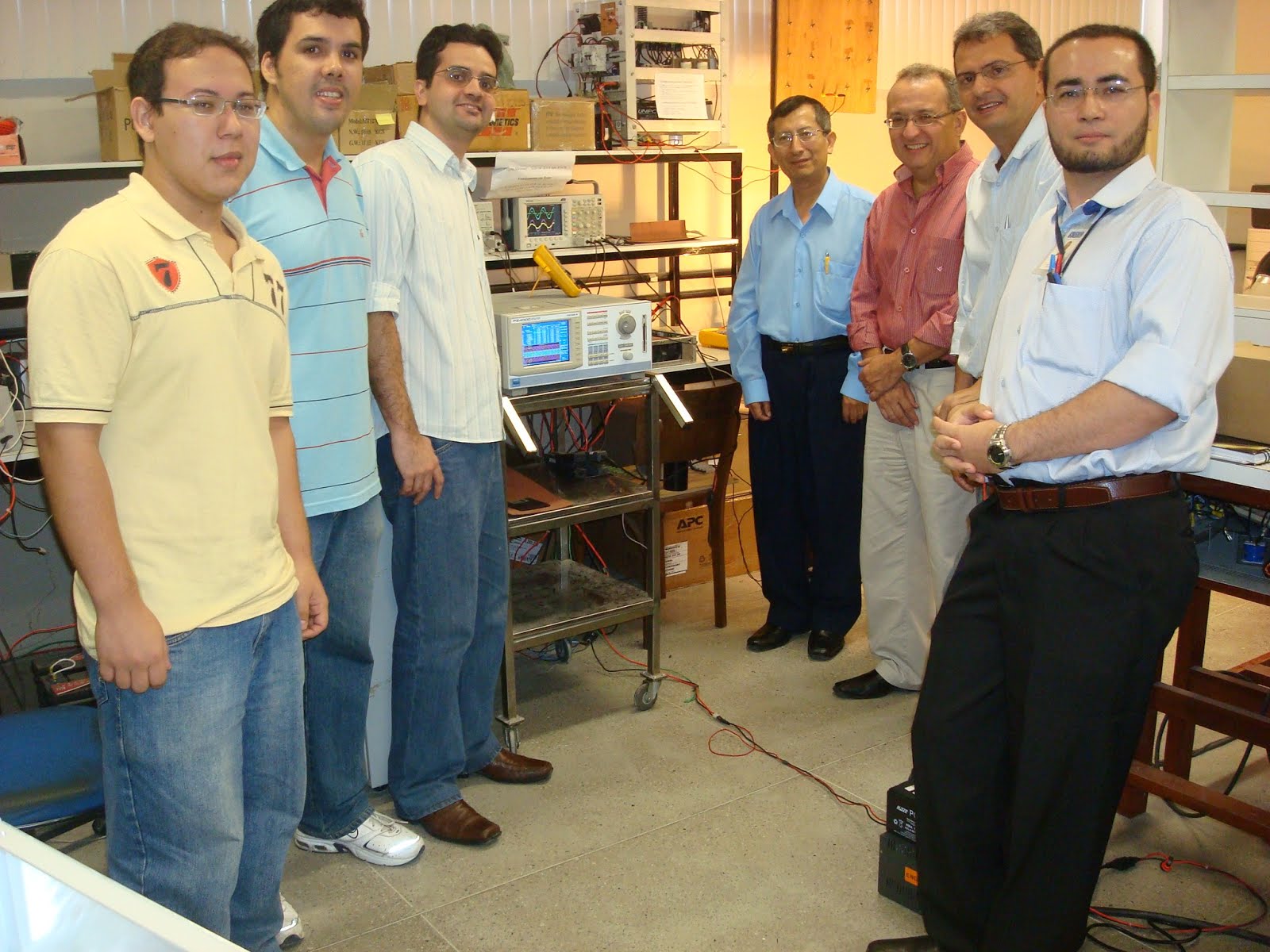sexta-feira, 30 de agosto de 2013
HIGH PERFORMANCE CONTROL OF A THREEPHASE PWM RECTIFIER YIN BO NATIONAL UNIVERSITY OF SINGAPORE
HIGH PERFORMANCE CONTROL OF A THREEPHASE
PWM RECTIFIER
YIN BO
(M.Eng., Wuhan University,China)
A THESIS SUBMITTED
FOR THE DEGREE OF DOCTOR OF PHILOSOPHY
DEPARMENT OF ELECTRICAL AND COMPUTER ENGINEERING
NATIONAL UNIVERSITY OF SINGAPORE
2008
DOWNLOAD FULL THESIS
http://www.mediafire.com/?1lvzrknovicuth2
New Energy-efficient High-voltage DC-DC Power Conversion Technology by Wang Huai
New Energy-efficient High-voltage
DC-DC Power Conversion Technology
Submitted to
Department of Electronic Engineering
電子工程學系
in Partial Fulfillment of the Requirements
for the Degree of Doctor of Philosophy
哲學博士學位
by
Wang Huai
王懷
March 2012
二零
DOWNLOAD
http://www.mediafire.com/?gwqda8k1hy9biy3
LOW-POWER PFC AND FORWARD CONVERTERS – METHODS TO IMPROVE PERFORMANCE Thesis for the degree of Doct or of Science in Technology
Helsinki University of Technology Institute
of Intelligent Power Electronics Publications
Espoo 2004 Publication 8
LOW-POWER PFC AND FORWARD CONVERTERS –
METHODS TO IMPROVE PERFORMANCE
Thesis for the degree of Doctor of Science in Technology
Vesa Tuomainen
Dissertation for the degree of Doctor of Science in Technology to be presented with due permission of
the Department of Electrical and Communications Engineering for public examination and debate in
Auditorium S4 at Helsinki University of Technology (Espoo, Finland) on the 4th of June, 2004, at 12
noon.
Helsinki University of Technology
Department of Electrical and Communications Engineering
Power Electronics Laboratory
DOWNLOAD FULL
FACTOR CORRECTION CONVERTERS FOR DISTRIBUTED POWER SYSTEM by MATADA MAHESH
FACTOR CORRECTION CONVERTERS FOR
DISTRIBUTED POWER SYSTEM
MATADA MAHESH
Dissertation submitted in partial fulfillment of the requirements for the
degree ofDoctor of Philosophy In Electrical Engineering
Under the supervision of
Prof. Anup Kumar Panda
Department of Electrical Engineering
National Institute of Technology, Rourkela
October 2011
ABSTRACT
In present situation, the increase in the utilization of computers, laptops,
uninterruptable power supplies, telecom and bio-medical equipments has become
uncontrollable as its growth is rising exponentially. Hence, increase in functionality of such
equipments leads to the higher power consumption and low power density which provided a
large market to distributed power systems (DPS). The development of these DPS posed
challenges to power engineers for an efficient power delivery with stringent regulating
standards; this is the motivation and driving force of this research work. The objective is to
minimize the switching losses of front-end converters employed in DPS, with the primary
aim of achieving nearly unity power factor operation of converters.
Single-phase and three-phase rectifiers are increasingly used in the field of alternating
current – direct current (AC-DC) power converters as front-end converters in DPS. For
power factor correction (PFC) stage, conventional single-phase AC-DC PFC boost converter
is the most suitable topology because of its inherent advantages. These PFC boost converters
exhibit poor dynamic regulation of output voltage owing to low pass filter in the voltage
feedback loop. Research effort has been made to mitigate this problem of AC-DC PFC boost
converters. An extended pulse width modulation switching technique has been investigated
and proposed especially for single-phase and three-phase AC-DC PFC boost converters to
improve the dynamic response of output voltage during transient periods.
DOWNLOAD FULL THESIS
http://www.mediafire.com/?72t2phesuicz7mh
quarta-feira, 28 de agosto de 2013
NEW GENERATION THREE-PHASE RECTIFIER Electrical and Electronic Engineering at the University of Canterbury, Christchurch New Zealand EATON POWER QUALITY

NEW GENERATION THREE-PHASE RECTIFIER
By William Phipps A thesis presented for the degree of Doctor of Philosophy In Electrical and Electronic Engineering at the University of Canterbury, Christchurch New Zealand July 2008 ABSTRACT This thesis describes the development of a new gener ation of three-phase rectifier, used to power telecommunications equipment. The traditional topol ogy for such power converters is a single- phase two-stage design, with a boost converter provid ing power factor correction at the input to the first stage and an isolated dc-dc converter making up the second stage. A two-stage design results in the output power being processed twice and this ca scade effect results in an overall reduction in efficiency. A rectifier solution is sought that meet s with all the requirements of the telecommunications industry, while not displaying th e inherent weaknesses associated with a boost-derived topology, and which can be realised in a single-stage design. A number of common three-phase topologies exist that could be realised as telecommunication power supplies, however, they do not completely satisfy all the industry requi rements. A new three-phase rectifier, which is a single-stage buck-derived topology, is proposed. As a consequence of incorporating a buck- derived topology, the three-phase rectifier does not exhibit any issues resulting from startup inrush currents, or high currents due to an output short circ uit condition, as would result in a boost- derived topology. The new proposed rectifier is modu lar in nature, which has the added benefit of redundancy. As a result of the new three-phase rect ifier having a single-stage topology, it is expected that the overall efficiency would able to re ach close to 95%. This is due to the traditional two-stage designs having efficiencies around the 90% mark, and therefore by removing a stage, out of the power conversion process the overall losses w ould also be halved, resulting in the 5% gain in efficiency. The rectifier system requires only one controller as a result of being a single-stage design, thus also reducing the overall system cost. ESTA TESIS FUE FINANCIADA POR LA EATON POWER QUALITY LTD. The initial motivation in developing a new generation of rectifier topology was to see if it would be possible to have a topology that would yield a significant increase in efficiency over the traditional two-stage designs. It was identified that in order to achieve a cost reduction in the rectifier system, an increase the overall efficiency was needed. This would in turn give Eaton Power Quality Ltd. an advantage in the market place.
DOWNLOAD
http://www.mediafire.com/download/i93yka6s7d3cqxm/NEWRETIFICADORTRIFASICO.pdf
Assinar:
Postagens (Atom)

















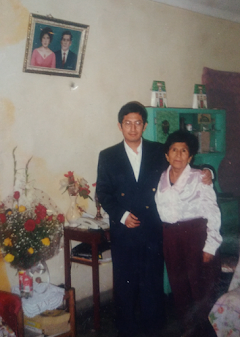





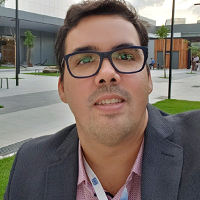





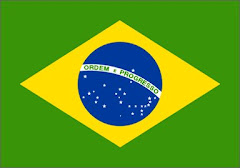


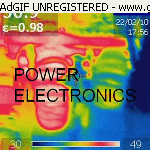




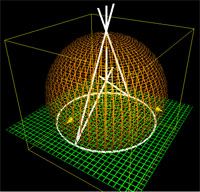


 JOSIL ARTISTA PLASTICO FORTALEZA CEARA BRASIL AV.HERACLITO GRAÇA 41 TEL(85)32542378
JOSIL ARTISTA PLASTICO FORTALEZA CEARA BRASIL AV.HERACLITO GRAÇA 41 TEL(85)32542378